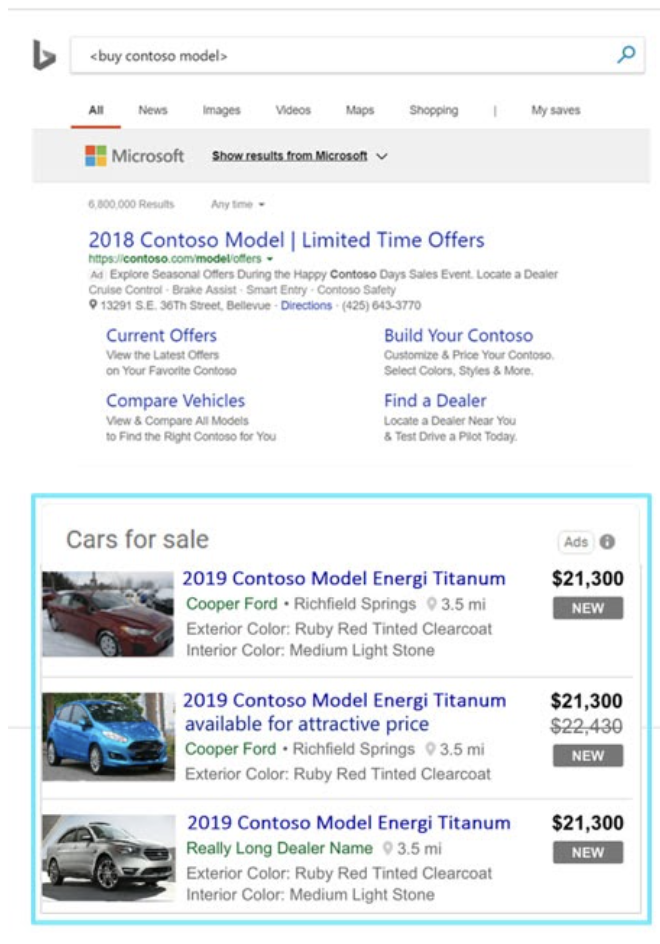Yes, your affiliates are your partners in marketing. However, they will bend your program rules if it makes an extra buck. In addition, it can be tricky to know if an affiliate is brand bidding on purpose or accident. This gray area occurs because an ad can appear on a search engine results page (SERP) due to match type and a feature called ‘auto-apply recommendations.
Category: Agencies
Affiliate Agreements – PPC Restrictions You Need to Include
Affiliate compliance begins with a well-crafted and well-thought-out affiliate agreement. This is not legal advice and is intended as business advisement. Many programs require customized contracts. These are examples of restrictions to aid you in deploying an effective compliance strategy:
Guide to Search Engine Trademark Policies
When it comes to trademarks, there are three types of uses that brand owners need to watch out for on paid search:
- Keyword Sponsors. This is when an unauthorized affiliate sponsors your brand as a keyword so that the affiliate’s ads appear when a user searches for your name or products.
- Ad Copy Use. This is when an unauthorized affiliate uses your brand within ad copy text.
- Display URL Use. This is when an unauthorized affiliate uses your brand as part of its display URL.
How to Create an Effective Branded PPC Campaign
Lesson 1 | Brand Protection Crash Course
Lesson 1: Why is PPC brand protection important?
Unless you are entirely new to PPC, getting the significant gains we once saw is tough. PPC has matured as a marketing tactic for years, and few “easy wins” remain. Many categories are dominated by prominent players (e.g., Amazon), long-tail keywords have become expensive, and the most advanced marketers have complex technology and costly agencies.
Especially with first-page CPC bids on the rise, it can be tempting for advertisers to look for any opportunity to reduce costs, and sometimes branded campaigns get the ax.
The Best Google Ads Metrics For Measuring Your ROI
If you’re reading this, you’re using Google Ads as an advertising platform for your business or strongly considering it. It’s the search engine that accounts for 93% of global searches. It’s the only platform where you can virtually guarantee your audience to use it.
But that certainty also means that the level of competition is high and getting higher, which in turn means that the cost of advertising on Google can increase with time. That means you need to do more with less unless your budget increases. So continual optimization of your ads is a necessity.
Brand Protection Case Study: Avery Reduces Brand CPC By 64%
The Search Monitor is a powerful set of tools that empowers even the largest brands to stop trademark abuse in online advertising, saving them potentially millions of dollars in ad spend.
Avery Products Corporation, a label manufacturer that generates $175 million in revenue every year and employs more than 20,000 people, started using The Search Monitor to fight back against brand bidders who were abusing their trademark and driving up ad costs.
NEW Whitepaper—Six Common Challenges in Optimizing PPC Campaigns & How To Solve Them
We are excited to share our latest whitepaper that covers six common challenges in optimizing PPC campaigns and how to solve them.
Optimizing search campaigns is the ‘meat and potatoes’ of every PPC team. However, it is also one of the most difficult to get consistently right. In this 6-step guide we are going to look at some of the most pressing challenges that face the PPC team when it comes to optimizing campaigns, why they’re happening and how to tackle them.
Three key data points on why the Gym market is heating up in North America
It’s that time of the year when millions of people around the world decide to motivate themselves, dust off their sweatpants and get back to the gym. So this year we wanted to see if the data is reflecting a shift from more ‘at-home’ workouts to people heading back to the gym in-person. Is there a growing confidence to get back to public gyms as lockdown measures ease in the United States?
Using The Search Monitors Lighthouse™ data*, we pulled SERP Share data as well as ad spend and competitive data to discover the detail.
5 Tips To Win In Sports Betting
SuperBowl Sunday is almost upon us and with that, a flurry of large wagers will be placed on who will be victorious in Los Angeles after the final whistle has been blown. Experts predict this could be the biggest Super Bowl ever for online betting. No one knows whether the Rams or Bengals will win. But one thing we can be sure of – sports betting companies will all win big.
Sports betting is becoming big business in the United States. It is currently live and legal in 30 states plus Washington DC. Now that legal betting is expanding from online websites to mobile apps, the market is set to expand even more rapidly in the years to come. Just look at the money spent on sports betting in June 2018 vs. October 2021:
How The Right Ad Intelligence Can Help Automotive Advertisers Speed Past The Competition
In the Spring of 2021, Google and Bing announced a new ad format—Vehicle Listing Ads (VLAs). These feed-based product ads (similar to Product Listing Ads for retail) allow automotive dealerships to expand their reach and conversions. By simply uploading their inventory (make, model, year, etc.) their listings will be served up on Google and Bing search results and give the buyer a better search result and jumping off point.

They also give automotive marketers the ability to own more of the SERP—every advertiser’s dream come true. And, as we have learned with every industry, the more data available around competition and ad performance, the better decisions marketers are able to make, if they can access it.












